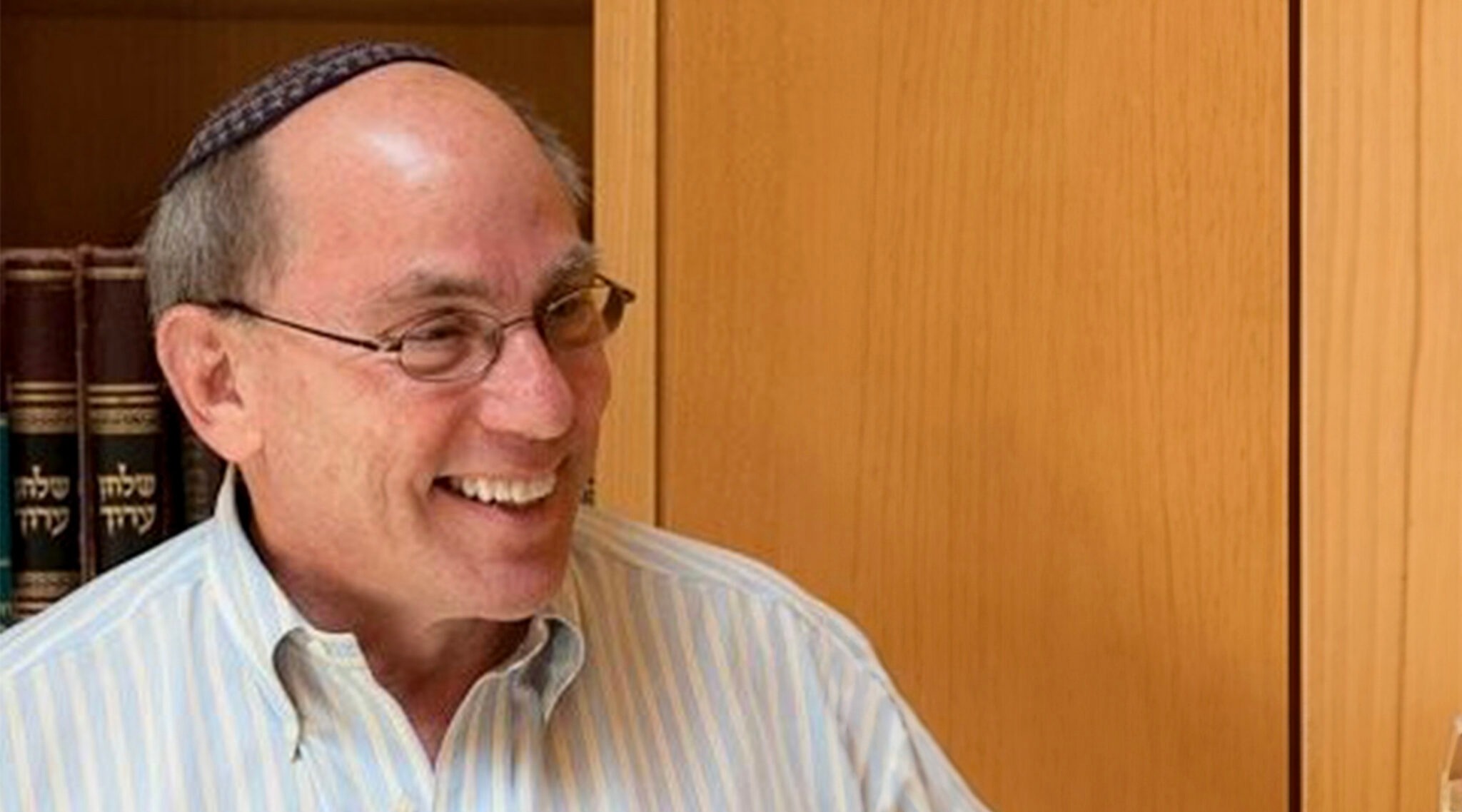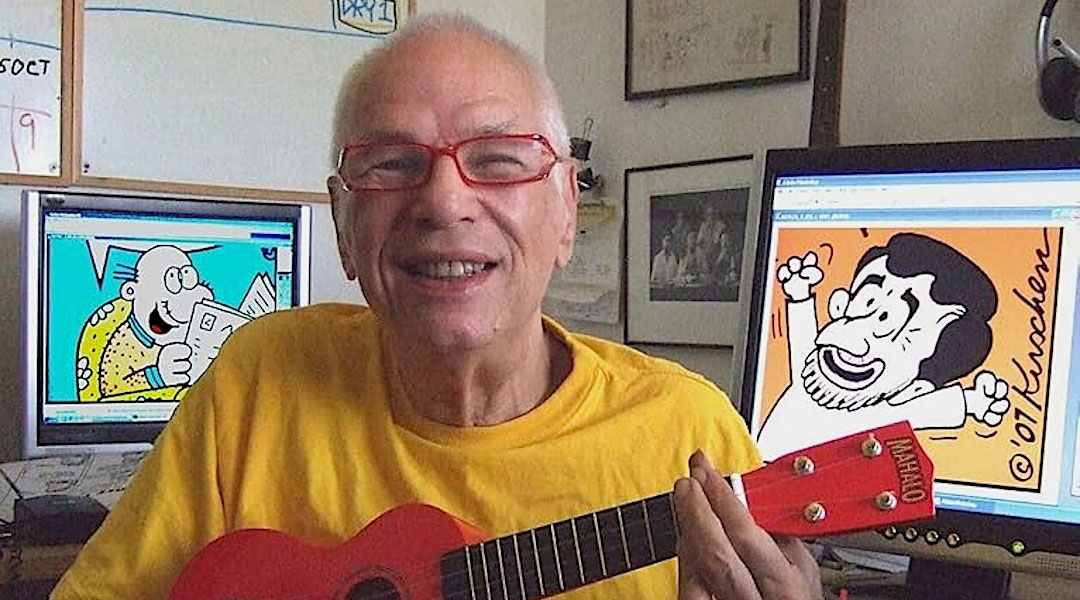(JTA) — “My goal,” wrote Bernie Steinberg when he won the prestigious Covenant Award for Jewish educators in 2010, “is to motivate the most energetic, talented, and idealistic young Jews to assume responsibility for the future.”
As the director of Harvard Hillel from 1993 to 2010, the campus organization became “known for the scope and depth of its programs, as a model pluralistic community, as a voice for Israel, and as a leader in interfaith work,” the Covenant Foundation, which presented the award, explained.
Steinberg, who was remembered by former colleagues and students as a master teacher and attentive mentor, died Sunday at age 78. Steinberg was also a faculty member at the Pardes Institute of Jerusalem — a pluralistic yeshiva — and a founding fellow of the Shalom Hartman Institute think tank in Jerusalem.
“I have rarely if ever met anyone so committed to the sacred art of nurturing young adults and encouraging them to blossom,” wrote his friend and former colleague, Rabbi Shai Held of the Hadar Institute, in an online tribute.
Steinberg came to Harvard Hillel after 13 years living in Israel, where he directed the Wesleyan University Israel Program and taught at the Hebrew University. Harvard Hillel had just completed Rosovsky Hall, a 19,500-square-foot building designed by the Israeli architect Moshe Safdie that was intended to place Jewish life squarely at the center of a campus that in a previous era had restricted its Jewish enrollment.
During Steinberg’s tenure, he helped create a new leadership education program to foster interaction between diverse communities within the Ivy League university. He also created Netivot (Pathways), an intensive, year-long program in Israel for undergraduates at Harvard, Yale and New York University.
His time at Harvard was marked by a commitment to welcoming Jewish voices from across the political and religious spectrum, courting controversy on the right when Hillel hosted a photo exhibit by the far-left Israeli group Breaking the Silence, and criticism from the left when he included the hawkish Yiddish professor Ruth Wisse on a panel commemorating the 10th anniversary of the assassination of Israeli Prime Minister Yitzhak Rabin.
In one of his last public acts, this past December Steinberg wrote an op-ed for the Harvard Crimson that some Jewish critics said pushed this pluralism beyond acceptable limits. In the weeks before the op-ed, the campus had been riled by accusations by Jewish groups and others saying the school’s handling of the fallout of the Oct. 7 Hamas attacks — especially a statement by campus groups holding “the Israeli regime entirely responsible for all unfolding violence” — failed to protect Jews from a hostile environment. Steinberg countered that critics of the administration and those calling for the ouster of then president Claudine Gay were “manufacturing an antisemitism scare, which, in effect, turns the very real issue of Jewish safety into a pawn in a cynical political game.” He encouraged Jewish students to be “boldly critical of Israel.” (Gay later stepped down amid the criticism and plagiarism charges.)
Bernard Steinberg was born March 10, 1945, and grew up in St. Louis. After receiving a B.A. from Wesleyan University and an M.A. from Brandeis University, he taught at the Cleveland College of Jewish Studies and Case Western Reserve University and founded the department of Jewish Education at the Jewish Community Centers of Cleveland. He wrote his doctoral dissertation at the Hebrew University on the Jewish philosophers Hermann Cohen and Nahman Krochmal.
Michael Simon, the Hillel executive director at Northwestern University, was associate director at Harvard under Steinberg, who officiated his wedding.
“Early on in my time at Harvard Hillel, I asked Bernie what traits we should look for when hiring people to work there. He said, simply, we should look for candidates who love people and love Torah,” Simon recalled in an online post. “I don’t know of anyone else who epitomized that combination quite like Bernie.”
After leaving Harvard, Steinberg moved in 2012 to Berkeley, California, where he served as vice president of the Shalom Hartman Institute of North America and later a visiting scholar at the Center for Jewish Studies at the Graduate Theological Union in Berkeley. He was a member of Congregation Beth Israel, a Modern Orthodox synagogue in Berkeley. Most recently, he lived in Chicago, where his son Avi is an author and lecturer in nonfiction writing at the University of Chicago. He is also survived by his wife, Roz; a daughter, Adena; and a granddaughter.
“I miss an Abba with whom I communicated in a short-hand very few but we could understand, whose greatness, humbleness, goodness, sharpness, optimism, moral clarity, and unconditional love were integrated truths which he wielded with fluency and flexibility,” Adena, a clinical psychologist, wrote on social media. “I hope that different parts of him continue to live on in the many many people he loved so much, especially his granddaughter, nieces, nephews, grand-nieces, grand-nephews, dear friends, colleagues and students.”





